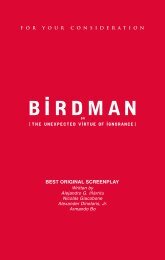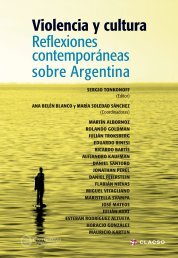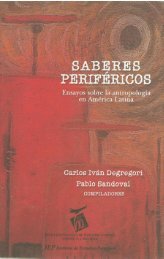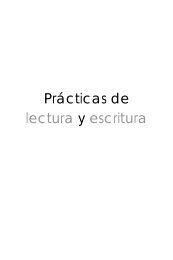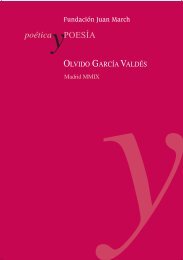blueprints
blueprints
blueprints
Create successful ePaper yourself
Turn your PDF publications into a flip-book with our unique Google optimized e-Paper software.
About River of Words | 111<br />
fantasy,” Yeats wrote—and I think he had the rhetoric of Irish nationalism<br />
in mind—“The heart’s grown brutal from the fare. . . .” So I often found that,<br />
while I found it easy to talk about literacy, education, the power of American<br />
literature, the power and reach of literature in the world, and about the<br />
environment and environmental literature, the subject of poetry left me<br />
mute. Poems were another matter. It was always a pleasure and an interest to<br />
talk about poems in particular—the amazement of this rhythm or the leap<br />
of mind in that metaphor. For several years during that time, I found myself<br />
in the position of having to write a short essay about a poem every week,<br />
and I liked doing it. But when I was asked, as poets laureate are incessantly<br />
asked, about the good of poetry or the social role of poetry or—depending<br />
on what city one was in—the popularity or unpopularity of poetry, my<br />
mind seemed to go on strike.<br />
Yet a line of Frost’s was often in my head. “The land was ours before we<br />
were the land’s.” I’ve always read that with my experience of the stunning<br />
small accuracies of haiku and of the traditions of literati painting in mind.<br />
When Basho was writing his poems in the early seventeenth century,<br />
people had been living on the Japanese mainland for at least ten thousand<br />
years and had had a tradition of written poetry in Japanese since the early<br />
eighth century, so Basho was writing his poems in relation to at least nine<br />
hundred years of a literary tradition of close observation of the land.<br />
Though he lived in New England, in the frontier town of Farmington<br />
for at least forty years, Edward Taylor, who died in the early eighteenth century<br />
and may be the best of our early American poets, wrote poems in<br />
which the rare bird or plant he names is English, not North American. So,<br />
even in New England, the marriage of natural place and the English language<br />
and the powers of imagination and observation are no more than<br />
three hundred years old. In my part of the world, it is younger than that by<br />
almost one hundred and fifty years. As Whitman saw and as Dickinson<br />
taught us with her adaptations of the hymn form, the work required was<br />
not just a matter of putting the inherited forms of English poetry to work<br />
on the American landscape—they needed to be acclimated to one another.<br />
That work seems to have been begun in New England in the early years of<br />
the nineteenth century, roughly contemporaneous with the work Audubon<br />
and our landscape painters and our botanical and geological explorers were<br />
doing. They were learning to see the land and to find a language for what<br />
they were seeing. There is every reason—in the world we have made, in the



